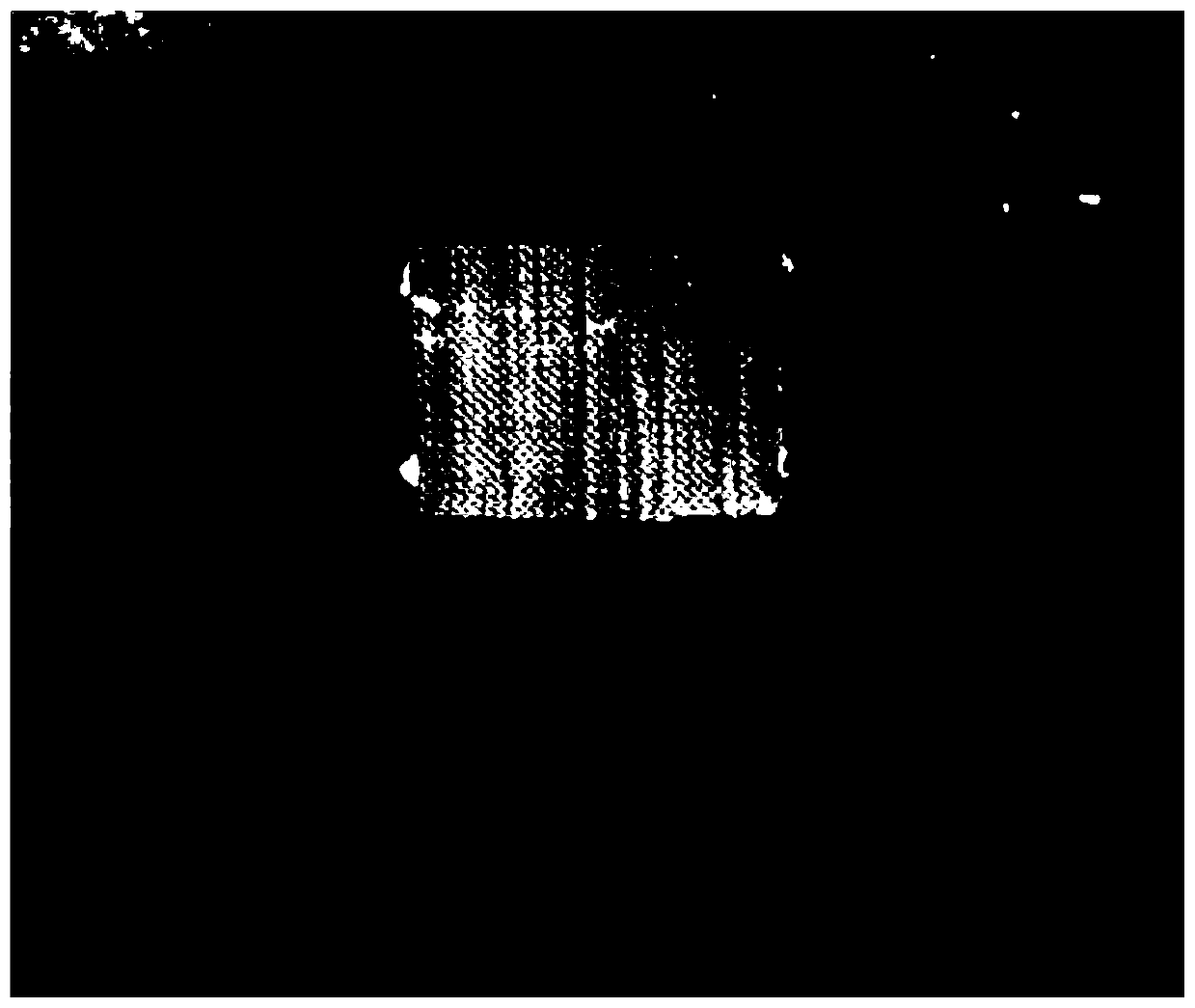Method of preparing large-area crack-free thick-film photonic crystal on porous substrate
A technology for photonic crystals and porous substrates is applied in the field of preparing large-area crack-free thick-film photonic crystals, which can solve problems such as cracks, and achieve the effects of simple process, low cost and wide application range.
- Summary
- Abstract
- Description
- Claims
- Application Information
AI Technical Summary
Problems solved by technology
Method used
Image
Examples
Embodiment 1
[0040] The method for preparing a silicon dioxide photonic crystal thick film with a thickness of 50 μm using a 500-mesh stainless steel mesh as a substrate is as follows:
[0041] 1) Take 1.0 g of silicon dioxide monodisperse microspheres with a particle size of 300 nm in a beaker, add 50 ml of absolute ethanol, and ultrasonically disperse for 30 min to form a uniform suspension with a mass concentration of 0.2%;
[0042] 2) take an area of 4cm 2 The 500-mesh stainless steel wire mesh was cleaned in absolute ethanol and acetone and placed in a drying oven to dry;
[0043] 3) Put the stainless steel wire mesh in the suspension, put it in an oven at 50°C, wait for 5 hours until the solvent of the suspension is completely volatilized, and then take it out to prepare a thick film of silicon dioxide photonic crystal with a thickness of 50 μm , and there is no crack on the surface, such as figure 1 shown.
Embodiment 2
[0045] The method for preparing a 250 μm silicon dioxide photonic crystal thick film with a 150-mesh titanium mesh as a substrate is as follows:
[0046] 1) Take 2.0 g of silicon dioxide monodisperse microspheres with a particle size of 300 nm in a beaker, add 50 ml of absolute ethanol, and ultrasonically disperse for 30 minutes to form a uniform suspension with a mass concentration of 1%;
[0047] 2) take an area of 4cm 2 The 500-mesh stainless steel wire mesh was cleaned in absolute ethanol and acetone and placed in a drying oven to dry;
[0048] 3) Put the titanium mesh in the suspension and put it in an oven at 50°C. After 5 hours, until the solvent of the suspension is completely volatilized, then take it out to prepare a 250 μm thick film of silicon dioxide photonic crystal, and the surface no cracks as figure 2 shown.
Embodiment 3
[0050] The method for preparing a polystyrene photonic crystal thick film with a thickness of 170 μm using carbon fiber paper as a substrate is as follows:
[0051] 1) Take 0.5g of polystyrene monodisperse microspheres with a particle size of 500nm in a beaker, add 200ml of deionized water, and ultrasonically disperse for 30min to form a uniform suspension with a mass concentration of 5%;
[0052] 2) take an area of 4cm 2 Carbon fiber paper with a thickness of 170 μm was washed in absolute ethanol and acetone respectively, and then dried in a drying oven;
[0053] 3) Put the carbon fiber paper in the suspension and put it in an oven at 55°C. After 24 hours, until the solvent of the suspension is completely volatilized, then take it out to prepare a 170 μm polystyrene photonic crystal thick film, and the surface no cracks as image 3 shown.
[0054] The reflection peak of the photonic crystal thick film is tested by a UV-visible spectrophotometer, and the result shows that...
PUM
| Property | Measurement | Unit |
|---|---|---|
| particle diameter | aaaaa | aaaaa |
| thickness | aaaaa | aaaaa |
| area | aaaaa | aaaaa |
Abstract
Description
Claims
Application Information
 Login to View More
Login to View More - R&D
- Intellectual Property
- Life Sciences
- Materials
- Tech Scout
- Unparalleled Data Quality
- Higher Quality Content
- 60% Fewer Hallucinations
Browse by: Latest US Patents, China's latest patents, Technical Efficacy Thesaurus, Application Domain, Technology Topic, Popular Technical Reports.
© 2025 PatSnap. All rights reserved.Legal|Privacy policy|Modern Slavery Act Transparency Statement|Sitemap|About US| Contact US: help@patsnap.com



